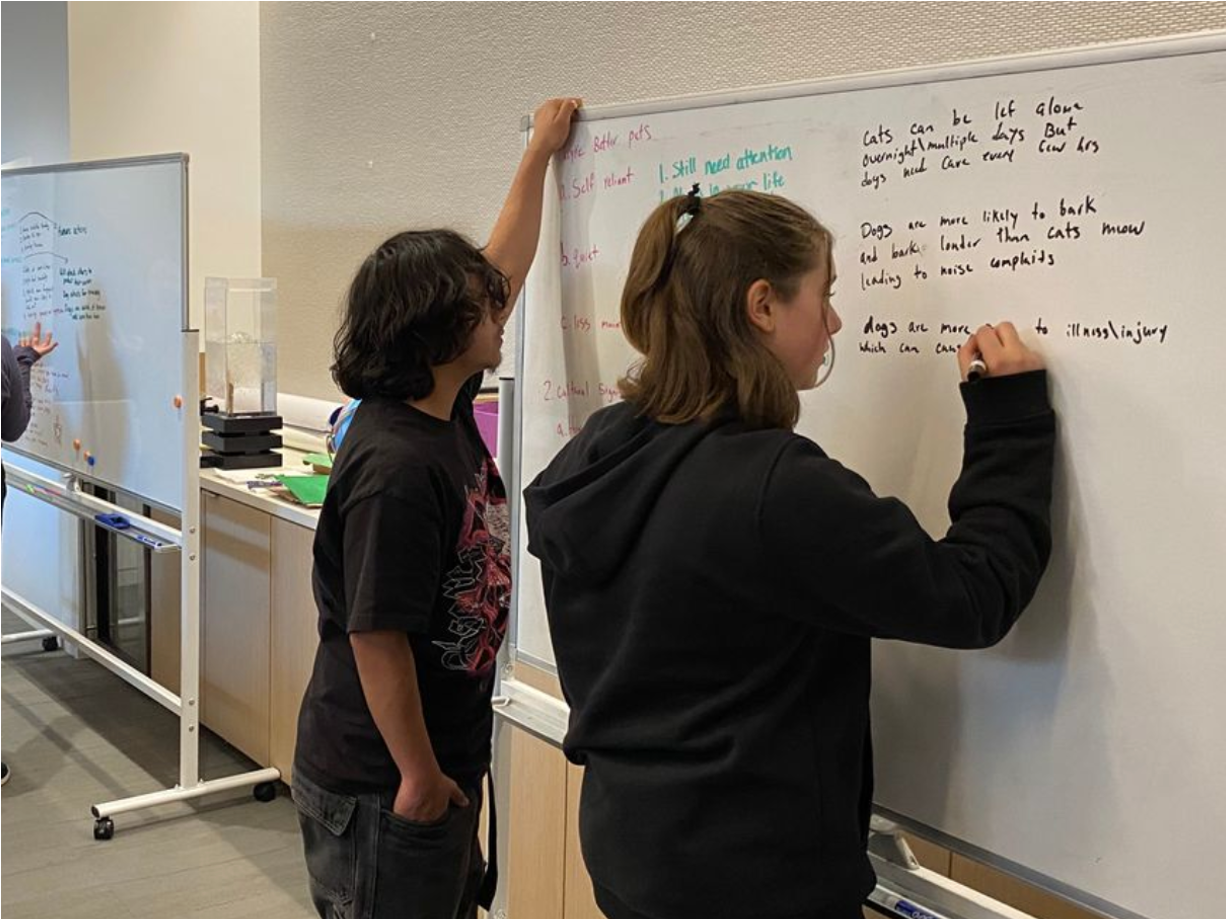“Pesticides, planes and how to artificially grow things so you can do it out of season.”
“The medical industry and technology, also heating and cooling.”
“I think progress is improving something, whether, morally, that’s something necessarily good or bad.”
9th Grade World Historians began their final unit this week on Population and Progress. Students shared examples they think of as defining progress and also ways the price may have been worth it or too great. This week they also submitted their Recipes for Revolution, studying, across their cohort, 20 different world events of rebellion or resistance and summarizing and analyzing their contributing events and major players in a creative recipe-style format (e.g. “Preheat oven to 1791 degrees. The Haitian Revolution officially began on August 13, 1791, but the causes began long before that.14“).
Preheat oven to 1791 degrees. The Haitian Revolution officially began on August 13, 1791, but the causes began long before that.
Using footnotes to share their primary and secondary sources, students have grown so much this year in independently using databases to select effective sources and integrate them into their work! In class, they began the Progress Unit with two readings: Population and Environmental Trends, 1880 to the Present (Bridgette Byrd O’Connor) and The Anthropocene (Cynthia Stokes Brown). This unit will be a collaboration between their World History and Foundations in Biochemistry classes, looking at population, as well as nuclear technology’s origin, how it works and has been used. Next week, students will lead a Socratic Seminar style discussion of their peers on the topic, considering its pros, cons and potential.

